Motorcycles & Mentorship
Published 02.13.2023
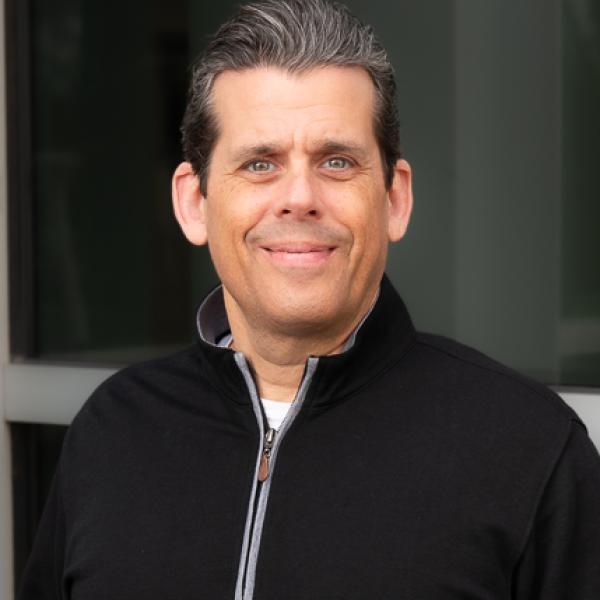
by Thomas Speicher
Writer/Video Producer
One hails from central Pennsylvania, loves horseback riding and was a SkillsUSA national gold medalist. The other is a northern Oregon native, loves NASCAR and was a national champion wrestler. Despite those contrasts, the two young women enjoy a strong bond, forged by a passion for welding and dedication to an iconic global brand.
Erin M. Beaver and Franchesca C. Ybarra graduated from Pennsylvania College of Technology 30 months apart, but today they are walking side-by-side at a comfortable, determined pace.
Rows of automated manufacturing equipment line their pathway. The drumming of presses and droning of weld cells synchronize to provide the soundtrack. Beaver and Ybarra are focused on the company’s ambitious daily production goal: 800 stylish motorcycles that would make the most jaded biker swoon.
The duo are manufacturing engineers for Harley-Davidson Inc. at its vehicle operations plant in York. The state-of-the-art factory is one of three in the nation for the company and its sole location for final vehicle assembly.
“Everyone knows Harley. Knowing that we are making some of the most desired bikes is insane,” Beaver grinned.
Like her mentor and now friend, Ybarra doesn’t ride a motorcycle. But she echoes Beaver’s enthusiasm.
“It’s pretty cool to see the bikes out on the road and be like, ‘Wow, I wonder if I inspected that fuel tank?’ It’s awesome,” she said.
Established 120 years ago in Milwaukee, Harley-Davidson is the nation’s oldest continuously operating motorcycle company. The bikes’ quality and indelible depictions in popular culture have created multigenerational devotees to the Harley mystique. Its Screamin’ Eagle logo is as ubiquitous on shirts, jackets and hats as it is on the Softail, Touring, custom vehicle operation (CVO) and other models assembled at the York plant.
The massive facility, equivalent to the square footage of 11-plus football fields, is driven by three distinct yet interconnected functions: fabrication, paint and assembly. Stationed in fabrication, Beaver, Ybarra and their team are gatekeepers of weld quality on critical components earmarked for the paint and assembly processes. They maintain and troubleshoot the robotic welding cells responsible for transforming raw steel and aluminum into frames, fenders and fuel tanks for the glistening bikes that roll off the production line every 80 seconds or so.
“Our main job is to keep the robots doing their jobs. You never know what you’re going to run into. There’s a lot of troubleshooting involved,” Beaver explained. “You have to dig down in the program and figure out the reason why a robot isn’t working right and fix it. Troubleshooting is what I enjoy the most.”
The same is true for Ybarra, whose chief focus is tank fabrication.
“Every day is different. For example, sometimes the robots fall out of path, and that’s where we come in,” she said. “The most rewarding part is robot troubleshooting because I’m familiar with that from school.”
Knowing that we are making some of the most desired bikes is insane.
Hands-on education with all facets of welding led Harley-Davidson to hire Beaver and Ybarra, first as interns during their respective senior years and later as full-time staff.
“Their metallurgical and welding knowledge is exceptional,” said Zach Merovich, engineering manager for fabrication. “With the Penn College degree, I know they are getting a lot of shop time. I think the program is exceptionally well-suited for what we have here.”
About 1,200 employees are immersed in the York plant, from management to the assembly-line professionals who give life to the bikes by attaching engines, tires, tanks, fenders and other elements to once-bare frames. Beaver and Ybarra are two of the few women engineers, but they don’t feel out of place. Their boss, Merovich, is a strong advocate for women in engineering, and the plant’s general manager, Dee Dee Fultz, is a mechanical engineer.
Merovich believes women are key to shrinking the skills gap. “It’s simple math,” he said. U.S. Census Bureau data reveals that women represent just 27% of STEM workers and 13% of the total engineering workforce. The low numbers belie the reality that women are just as capable as men in such roles, according to Merovich.
“To think otherwise seems foolish to me,” he said.
Fultz, who has worked more than 25 years in manufacturing, welcomes the perspective that women like Beaver and Ybarra bring to Harley-Davidson.
“Women problem-solve differently. We can arrive at a solution for a complex problem perhaps quicker than anyone else,” she stated. “There is a tangible calculation that diversity can save a company money. If you have complex problems, diversity of thought is the best way to solve those problems because you have ideas coming from different directions.”
“Men and women kind of think differently, but when we come together,
it’s crazy what you can come up with,” Beaver added.
Growing up outside of Winfield, Beaver admits the only thing she knew about welding was “not to look at the light” during repair work at her family’s farm. Horseback riding and art were her interests, and she didn’t touch a torch until high school. An agricultural course required by Future Farmers of America introduced her to the craft. Intrigued, Beaver took an introduction to welding class. Smitten by the sparks and creative possibilities, she became a welding student at SUN Area Technical Institute.
There she combined artistic instincts with her new passion. Beaver won gold and silver medals for welding sculpture at the SkillsUSA National Championship, which showcases the country’s top career and technical education students.
“Being the creative mind, I like to put stuff together, and I like to do the whole process, not just the beginning or end,” she said.
While a student at SUN Tech, Beaver successfully completed several Penn College dual-enrollment welding courses. The classes jump-started her college education, which culminated with a bachelor’s degree in welding & fabrication engineering technology in December 2019.
“It’s been invaluable for me to go to Penn College,” Beaver said. “It’s gotten me to where I am right now.”
Like in high school, Beaver was often the lone female in her welding classes.
“I kind of was challenged and motivated by it,” she said. “I believe it’s important to get out of your comfort zone because that’s where you really learn to grow as a person.
“I think at first the guys may have been intimidated by me. But as collaboration in our classes progressed, we all got to know one another and became great friends.”
Beaver credits knowledgeable and encouraging faculty and extensive time in the welding lab for an enriching college experience that included additional SkillsUSA events. She earned two more medals in welding sculpture (gold and bronze) and competed as part of the first all-female welding fabrication team at nationals.
“What I remember most about Erin was her determination to be the best,” said James N. Colton II, assistant professor of welding and the college’s SkillsUSA advisor. “I was most impressed by Erin’s ability to visualize what she wanted her final projects to look like before she even started them. I watched her create two of her national medal-placing sculptures and was wowed. She’s a great fit for Harley-Davidson because of her attention to detail.”
At this moment, Beaver is exhibiting that attribute in Harley-Davidson’s advanced inspection area, which encompasses a lab, three welding booths and space reserved for destructive testing. One of the plant’s two certified welding inspectors, Beaver oversees the department and employs the cut and etch process to ensure welds meet company standards.
Welds on all parts are inspected visually every day. But cutting and etching offers the truest sense of weld quality. Using various cutting equipment, Beaver removes the weld cross section from a part. An etchant – an acid or corrosive – is applied to the cutout to produce a contrast in brightness between the base metal and weld bead, making it easier to spot any weld imperfections. If a problem is identified, the robotic weld cells are modified accordingly.
Over 200 welds on frame and fuel tank components are examined each month through cutting and etching. Merovich estimates the in-house operation saves Harley-Davidson about $300,000 in annual outsourcing costs. “And we get immediate feedback on our welds instead of waiting a couple days to get the results back,” he said.
A handful of engineers assist Beaver, including Ybarra.
“I honestly don’t know where I would be without Erin,” said Ybarra, who received her welding & fabrication engineering technology bachelor’s degree in 2022. “She’s probably the biggest help that I’ve had so far. I knew I was going to learn a lot if I continued to stick by her side.”
The Hood River, Oregon, native discovered welding in high school when she noticed classmates proudly displaying their metal art projects. Ybarra followed their lead and took a beginning metals course, falling in love with the welding process and the creative results.
“I was like, ‘Wow, I can make this, and I can make that!’ With the heating and the coloring, it was fun,” she said.
Ybarra pursued welding at Southwestern Oregon Community College, where she also excelled as a wrestler, winning the National Collegiate Wrestling Association Championship in her weight class. “I love wrestling because of the physical and mental battle,” she said. “It builds character, takes self-discipline and determination, and pushes you to work hard toward a goal.”
After earning her associate degree, she wrestled her toughest opponent – indecision. Ybarra weighed entering the workforce as a welder against additional education. School prevailed when the dean of the college suggested a degree in welding engineering. “I knew I wanted to design and create things and do more than welding pipe,” Ybarra explained.
A Google search directed her to Penn College’s renowned program, on the cusp of expanding its state-of-the-art facility to more than 55,000 square feet. A careful review of the college’s curriculum and hands-on classes convinced Ybarra to trek across the country to advance her education.
“I thought to myself, ‘This sounds like me. I should be going there.’ I couldn’t wait to enroll,” she said.
Despite being vastly outnumbered by male students, Ybarra felt at home.
“We had all these classes together, so we got comfortable with each other,” she said. “The instructors were always so welcoming. We were all kind of like one big family all the time.”
Her path didn’t cross with Beaver until she completed her Harley-Davidson internship, but like her future co-worker, Ybarra was a Dean’s List student and distinguished herself outside of the classroom. She helped create the Penn College Welding and Research Club and was chosen to be the student speaker at her commencement, where she preached personal empowerment.
Their metallurgical and welding knowledge is exceptional.
The theme didn’t surprise Ybarra’s faculty advisor, welding instructor Michael C. Schelb.
“I was impressed by Frannie’s desire to take on all challenges that life or college presented her,” Schelb said. “No matter the conditions, she would use her tireless work ethic to find a way to overcome those challenges and, most importantly, reflect on those challenges and learn from them. She has the proven ability to work in a team environment as well as individually, which I’m sure makes her an asset to Harley-Davidson.”
A portion of Ybarra’s daily routine at the plant is devoted to independent work. On this late afternoon, she’s a solitary figure surrounded by seemingly endless rows of gray fuel tanks. One by one, Ybarra raises the tanks to eye level and rotates them multiple times so she can studiously examine each weld.
“When I look at a weld, I know what I’m looking at as far as visual inspection and defects,” she said confidently. “Penn College prepared me really well.”
Ybarra turns to a nearby laptop and inputs her findings. An Excel spreadsheet matches her weld quality assessments with specific robotic cells. The documentation serves as a key resource in tracking the consistency of each robot’s output. She’ll repeat this process until she inspects at least one tank from all weld cells.
When that moment arrives, Ybarra is again joined by Beaver. Weekend plans are discussed. Usually, Beaver heads back to the family farm to ride her horse, Danny, and Ybarra is hiking or glued to NASCAR cheering for Denny Hamlin to win the latest race. But this weekend, antiquing is in store for both.
“I like to go antiquing, specifically with Erin,” Ybarra smiled.
“We go whenever we can, not that we should, because it’s not very good on the pocketbook,” Beaver laughed.
One more thing that strengthens their bond.
A dream nearly dashed
by Tom Speicher, writer/video producer
While women represent nearly half the nation’s workforce, they hold less than a third of manufacturing jobs. Pennsylvania College of Technology graduate Erin M. Beaver knows firsthand one reason for that stark statistic from the U.S. Census Bureau. The antiquated thinking of a career influencer nearly extinguished her dream of entering the welding field.
Today, Beaver applies her bachelor’s degree in welding & fabrication engineering technology at Harley-Davidson’s vehicle operations plant in York. But if she had followed the advice of a guidance counselor, Beaver wouldn’t be troubleshooting robotic welding cells for the iconic motorcycle brand or overseeing its advanced inspection lab.
Too smart for tech?
An introduction to welding class in high school sparked her passion and prompted Beaver to seek a career and technical education program in the trade. Her guidance counselor discouraged that plan.
“He told me that I was too bright a student to throw away my future to a trades program,” Beaver recalled. “If I was insistent on going to vo-tech, he said I should go for nursing or cosmetology instead of welding because I would have a better chance at succeeding in a more traditional career path. I left the meeting with my confidence shattered and feeling like my aspirations for the future were somehow mistaken.”
It was the counselor who was mistaken. Modern manufacturing is high-tech, reliant on more brain than brawn and desperate for talent to shrink a skills gap that could hit 2.1 million unfilled jobs by 2030, according to Deloitte and The Manufacturing Institute. Plus, census data shows that women in manufacturing make 16% more than the median income for women workers.
For a woman who wants success, there’s so much opportunity here in manufacturing to do that.
Dee Dee Fultz, general manager of Harley-Davidson’s York facility
“For a woman who wants success, there’s so much opportunity here in manufacturing to do that,” said Dee Dee Fultz, general manager of Harley-Davidson’s York facility and a longtime champion of women in STEM. “What’s critical in my opinion is that you must introduce manufacturing to girls at a very young age. Even women don’t fully understand what manufacturing is. They still have this old traditional view.”
Bias is routine
Beaver’s story reveals that some guidance counselors do, as well. Her account doesn’t surprise Penn College President Michael J. Reed, who began his career as a secondary-school teacher, counselor and administrator.
“I strongly promoted STEM and career and technical education programs,” Reed said, “but I witnessed those biases that Erin faced on a routine basis. Exceptional student opportunities are being missed, and we must help educate in order to shift how some teachers and counselors perceive applied technology education. I’m grateful that Erin had the fortitude to fight through unnecessary burdens.”
Exceptional student opportunities are being missed, and we must help educate.
Michael J. Reed, president, Pennsylvania College of Technology
Emerging leader
She did so by finding another counselor and securing a spot in her district’s career and technical education program, where she completed several Penn College dual-enrollment courses and competed nationally in SkillsUSA, winning a gold medal for welding sculpture. Thanks to her perseverance, education and stellar work at Harley-Davidson, The Manufacturing Institute designated Beaver as an “Emerging Leader,” just one of 30 women nationwide to receive that peer-nominated award in 2022.
Encouraging others
“No student should ever feel that their hopes for their future are wrong, nor should they ever feel intimidated or swayed by a school counselor or educational system into choosing a career path that they don’t want,” Beaver said. “I can only hope that my story will help others see that they’re not alone in their fight to succeed and encourage them to be their own strength and biggest supporter.”

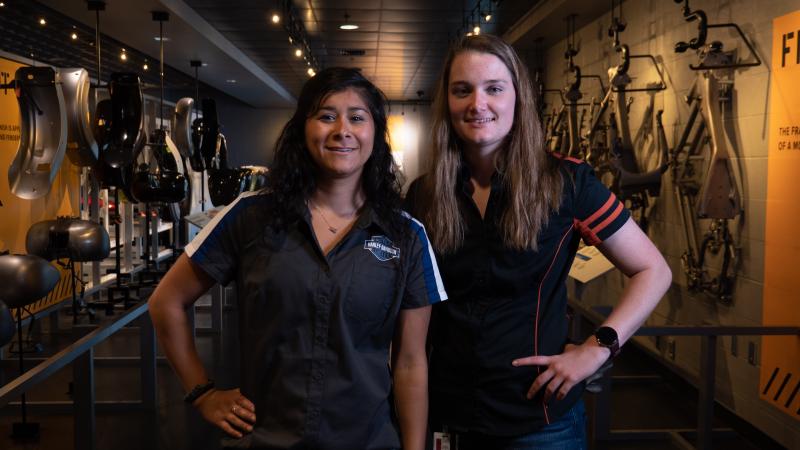
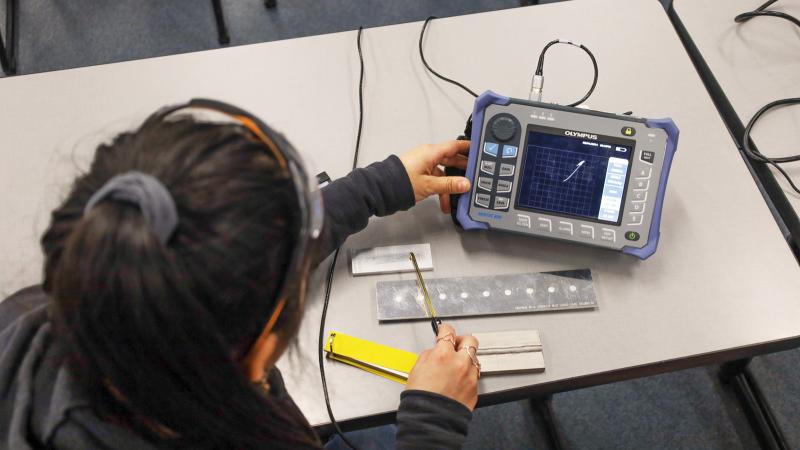
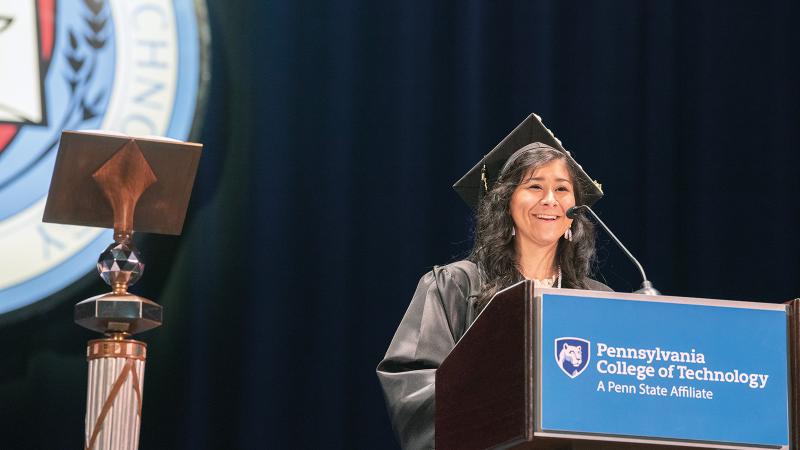
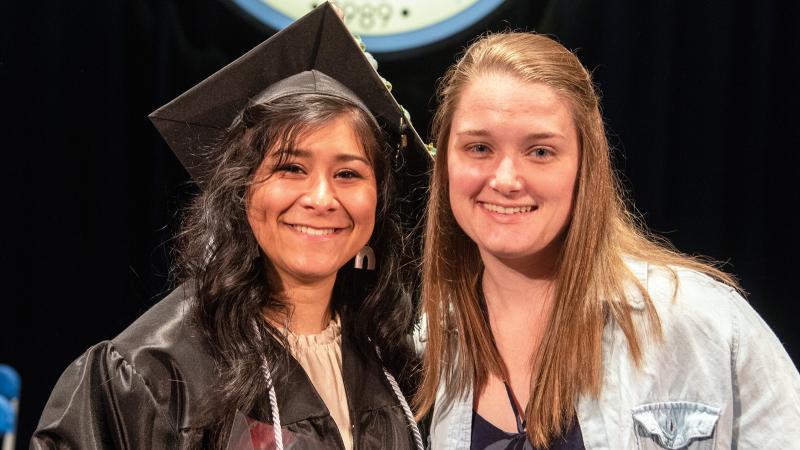
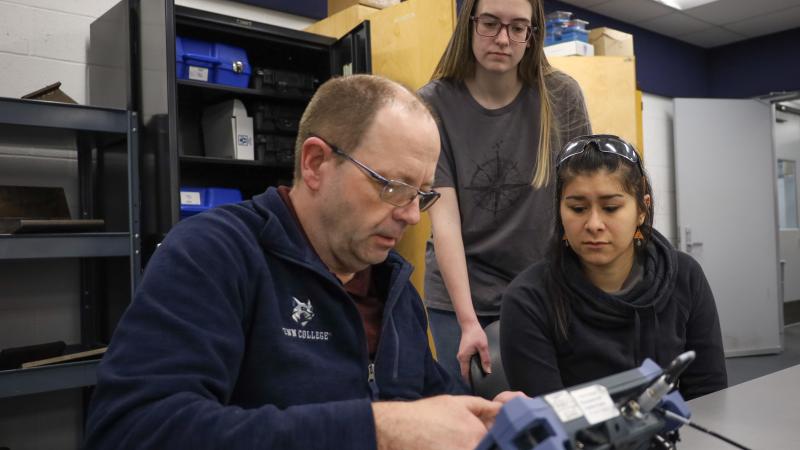
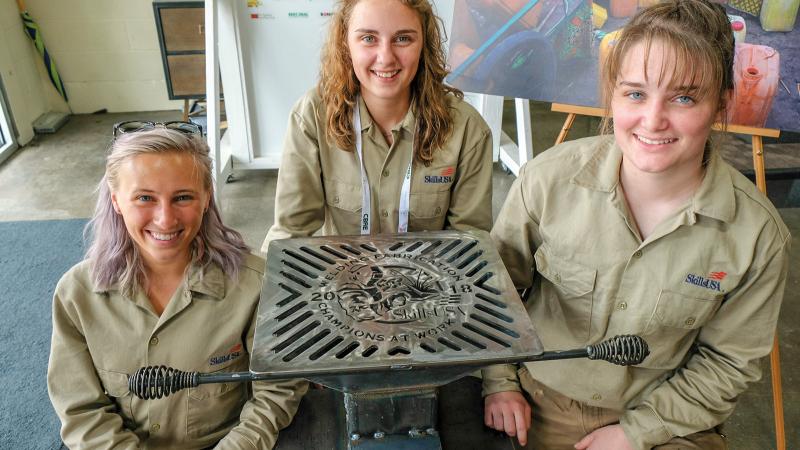
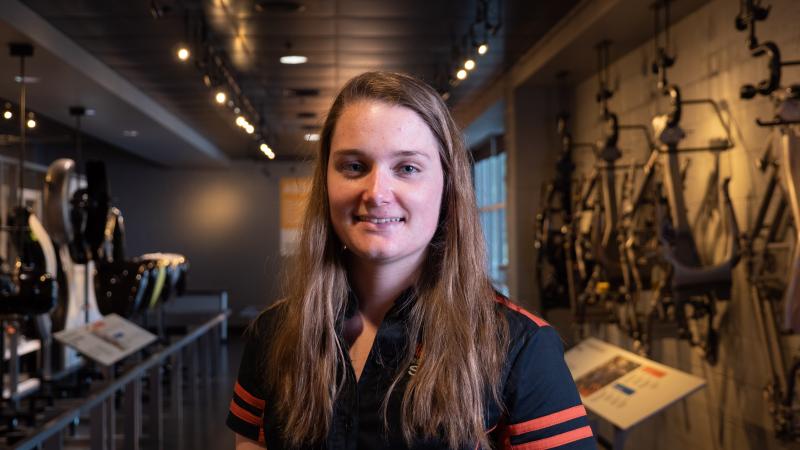
Share your comments
Penn College Magazine welcomes comments that are on topic and civil. Read our full disclaimer.
We love hearing from you